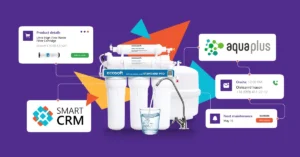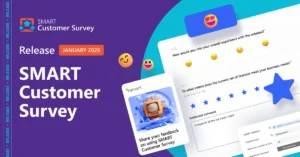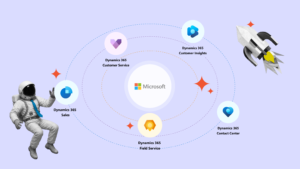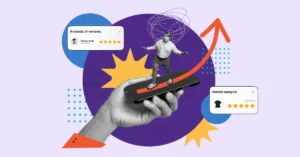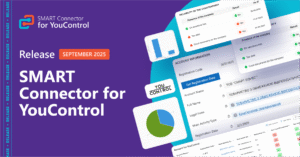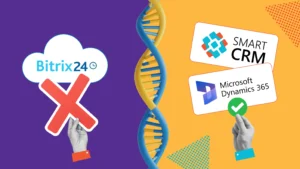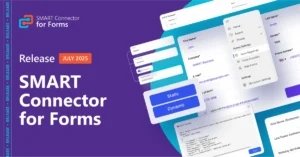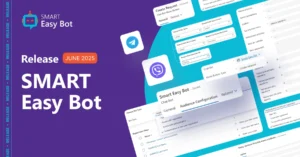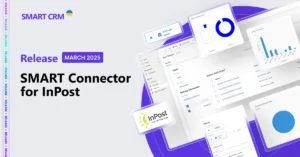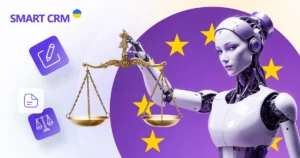What sellers need to pay attention to in order to be on trend in 2024

Artificial intelligence – the main trend of the year
The world entered 2024 with an understanding of the inevitability of the total implementation of technologies based on machine learning and artificial intelligence. Today they are actively integrating into various areas of business, changing the established rules of the game and opening up new opportunities.
And sales are no exception. According to last year’s research by the international company KANTAR, 67% of sellers in both B2B and B2C segments are positive about the possibility of using solutions based on AI and machine learning to improve the efficiency of their own business. Moreover: for many, without exaggeration, they are becoming a key tool in the pursuit of the hearts and wallets of consumers. And it is in the implementation of these technologies that more and more sellers from all over the world see an opportunity to scale without giving up personalized offers. On the contrary, it takes personalization to a new level of creativity and innovation. Let’s figure out how it works.
Main AI Use Cases in Sales
Delegate the routine to AI, and let the managers focus on sales
The use cases for artificial intelligence in practical sales cover a wide range of possibilities to help companies increase efficiency and improve customer interactions. Let’s look at the main ones, which are already significantly changing the industry in a qualitative way.
First, this is the use of AI for its main purpose, which is improving the overall efficiency of sales as a business process. This is possible thanks to the delegation of routine tasks to AI.
Note: according to surveys, sales managers spend only 28% of their working time on sales, and 72% on administrative and other related routine tasks. This is a kind of “growth area” for this business. After all, by automating the routine as much as possible, a business will receive more resources for building relationships with customers.
So, meet one of the main sales assistants – Microsoft Sales Copilot, which has already managed to justify its name.
This is a service for sales management based on artificial intelligence, created based on Microsoft 365, Microsoft Teams and Microsoft Dynamics 365. And in terms of functionality, it is a full-fledged smart AI secretary. It can be integrated with CRM, which means it can prepare a variety of analytical data on sales and personal behavioral characteristics of consumers in almost real time for the sales manager and is indispensable when preparing for meetings with customers or drawing up commercial offers.
It will carefully select the necessary information about the customer history of the counterparty, help create their personalized analytics for the selected period and pre-defined metrics, and even work as a prompter during an online meeting with them. After the negotiations are completed, it will generate a detailed summary emphasizing the highlights. Besides, it can write emails to customers, considering the style of preliminary correspondence and your wishes regarding the tone.
By implementing this smart assistant, your sales team will always be on trend. After all, with Copilot it’s very easy to create reports analyzing current market trends and your activities in Power BI. Moreover, based on them, it will prepare personalized offers for you to achieve your goals.
In short, Microsoft Sales Copilot will do all the support work so that the manager can focus on sales.
And business is already counting the first benefits from its implementation. Research based on the results of 2023 shows that only by upgrading the process of generating commercial offers, it’s possible to increase the volume of upselling or cross-selling by 2.5-3.1%!
Scholarcy is another smart online assistant. It allows you to quickly get a short summary of scientific research on a topic. If, say, you need to quickly verify any numerical research data, Scholarcy will quickly find it. And even if they are presented in Word or PDF documents, it will convert them into Excel format without any problems. If necessary, you can supplement these tables by entering your own data and compare them with those available in the study, and, if necessary, visualize them.
Notion.AI is an AI-based tool with extensive functionality for working with texts. It covers generating text on demand and preparing summaries from large-volume materials. It will also help you correct grammatical errors, write the same message in different tones or for different audiences, or in a format that is suitable for posting on different social platforms. It can write text using the content of a given document, or first write a market research study according to given parameters, and then summarize the highlights in a short text for an email newsletter. You can also entrust it with translating texts into foreign languages.
Superhuman is an AI-based sales assistant that, being integrated into CRM, will allow you to quickly respond to user email requests, and in such a way that they will be as personalized as possible and stylistically similar to those that a salesperson would write. Or maybe even better. It is the latter characteristic that this neural network owes its name to.
Simpler is another tool that will work to improve the efficiency of the sales team. It will help you prioritize tasks and focus on what matters most. And its integration with the calendar will allow you to set up reminders for important meetings and deadlines. It is also an excellent tool when you need to optimize a team’s workload by properly distributing tasks among its members. This smart assistant will also monitor the progress of the team as a whole and its individual members and provide personalized advice to each of them on the way to achieving their goals, in particular, optimizing their own sales strategy or interaction with customers. It will also help analyze sales results, generate reports and provide recommendations for improving results.
Outboundly is an indispensable AI tool for working with customers on LinkedIn. It specializes in writing highly customized emails and LinkedIn messages. It also analyzes data to identify and prioritize leads.
And this is not a complete list of smart sales assistants. Moreover, their number is growing rapidly. Therefore, for everyday use, you should choose only those that will best suit your business for solving its tasks.
Personalize your Relationships with Customers
Another area of application of technologies based on AI and machine learning is to stimulate sales by building and implementing effective interactions with the customer. According to experts, in 2024, those who can build personalized relationships with their customers will be successful in sales.
This direction is based on the collection of customer data (big data) and its analysis, in which AI-based models are increasingly involved. The business uses the results of this analysis to build personalized communication as an inseparable element of sales. It always pursues the goal of increasing profitability. However, one should distinguish between, so to speak, “operational” communication, the main task of which is to guide the buyer through the labyrinths of the sales funnel, and “strategic” communication, which is more about how to sell not products, but values and meanings.
In the first case, the main task of the seller is to create personalized messages and offers on platforms convenient for customers, in a convenient form and at a convenient time, in order to bring them to the final stage, that is purchase.
The use of AI for these purposes brings personalization in relationships with customers to the level of art. A case in point here is Amazon’s dynamic pricing. Using the capabilities of AI, the company generates individual prices for its customers in real time for millions of products every day. They depend on multiple factors, which can be divided into general and individual. The first includes market conditions, in particular, the level of competition and market saturation with a certain product. And the second includes the so-called “purchasing” behavior of the buyer. This includes their purchase history and search behavior (how often they browse the product, whether they consider other products with similar characteristics, time and place of purchase). And all this to provide this customer with the best price, which, without exaggeration, would be a personal one!
Another example is the popular language learning app Duolingo. Today it has 50 million active users worldwide who complete over a billion lessons daily. As the owners admit, they were able to achieve such involvement thanks to an individual selection of tasks that maintain a balance between the level of user expertise and the complexity of the tasks. The main idea is that the tasks, on the one hand, should not be too complex and discourage the learners from continuing learning, and on the other hand, that they should work for the individual progress of the user. To this end, in 2020 the company introduced the Birdbrain neural network (now its second improved version is already running in the application). It is this network that determines in real time what the next lesson of each user will be depending on their progress.
Another type of communication, so to speak, “long-term” one, is when companies study their consumers to create products that best satisfy their needs, moreover, are in line with their values. And this, in turn, works to create added value for the company itself. This sales method is mostly practiced by powerful transnational businesses. Their products and services are not only functional, but have deep meaning for consumers, which creates a lasting emotional connection with the brand.
Nike is actively researching the motivations and value systems of its customers to take this into account in its products. Based on this research, they create marketing campaigns that do not just sell sports and leisure products but inspire an active lifestyle and motivate them to achieve goals.
Starbucks also develops its strategies and products based on the cultural values and needs of its customers. They create more than just coffee shops where you can drink coffee. Here they organize spaces for socialization and recreation of like-minded people.
However, today, regardless of whether it is a multinational company or a local business, to be successful, you need to spend time and resources studying your consumer. The era of sellers of goods is irrevocably a thing of the past, making way for those who produce meaning. And clearly, this is a niche for innovation.
Customer Portrait 360: How does it Work?
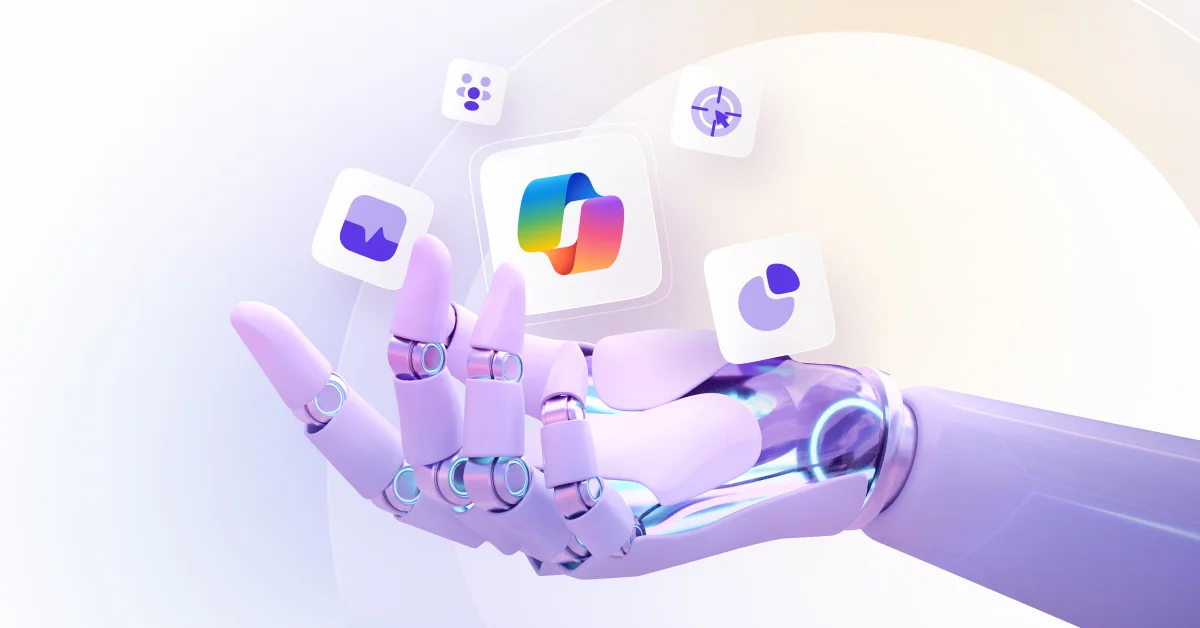
At the present stage of technological development, creating the most truthful profile of each consumer, including, say, transaction history, correspondence, communication in instant messengers, interaction with the loyalty program and a whole range of other metrics, even if we are talking about millions of customers, is much easier than it might seem.
In addition, there are objective prerequisites for this. Today, personalization is no longer a marketing ploy, but a requirement of the times. Customers are no longer ready to simply buy products, as they were a dozen years ago.
Today’s consumers expect higher levels of service and personalized attention. They are accustomed to personalized shopping experiences in digital services such as social networks, streaming platforms and online stores, and expect the same in all areas of consumption.
Thus, according to Forbes research, already at the beginning of this decade, 63% of consumers said that they were not ready to buy from brands that do not personalize their offers. Also, according to the same study, 83% of consumers are willing to share their own data to receive personalized offers.
Accordingly, sellers have entered the race for the hearts of consumers, leveraging the powerful capabilities of modern technologies such as big data, machine learning and artificial intelligence. This brought sales to a whole new level. Sellers are increasingly forced to focus not on how they want to sell, but on how consumers want to buy.
Under such circumstances, the need to build effective interaction between sales and marketing teams comes to the fore. After all, without the so-called “single customer profile”, sellers will waste time pursuing low-quality potential buyers and at the same time allow those who have not received enough attention to go to competitors. On the other hand, marketing teams alone cannot generate and transmit high-quality leads, tailor content to specific stages of the customer journey, and receive the feedback they need to adjust their strategies.
An increase in sales figures is only possible with effective interaction between these departments, albeit with clearly distributed areas of responsibility. And here, too, you can’t do without smart tools. According to the latest HubSpot research, 78% of sales professionals say their CRM effectively improves alignment between these departments and helps them make data-driven decisions together. Thanks to CRM, it is possible to more effectively build the customer journey from early targeting of potential customers all the way to the actual purchase.
Be on Trend with Sales Automation Solutions from SMART business
Having analyzed these trends, SMART business has developed its own solutions for sellers, combined into a common SMART CRM platform. Implemented on the principle of a process designer, they are easy to operate and are well adapted to the conditions of the local market. However, despite their ease of use and competitive price, they are a reliable sales, marketing and service tool that can take sales to new levels of efficiency and productivity.
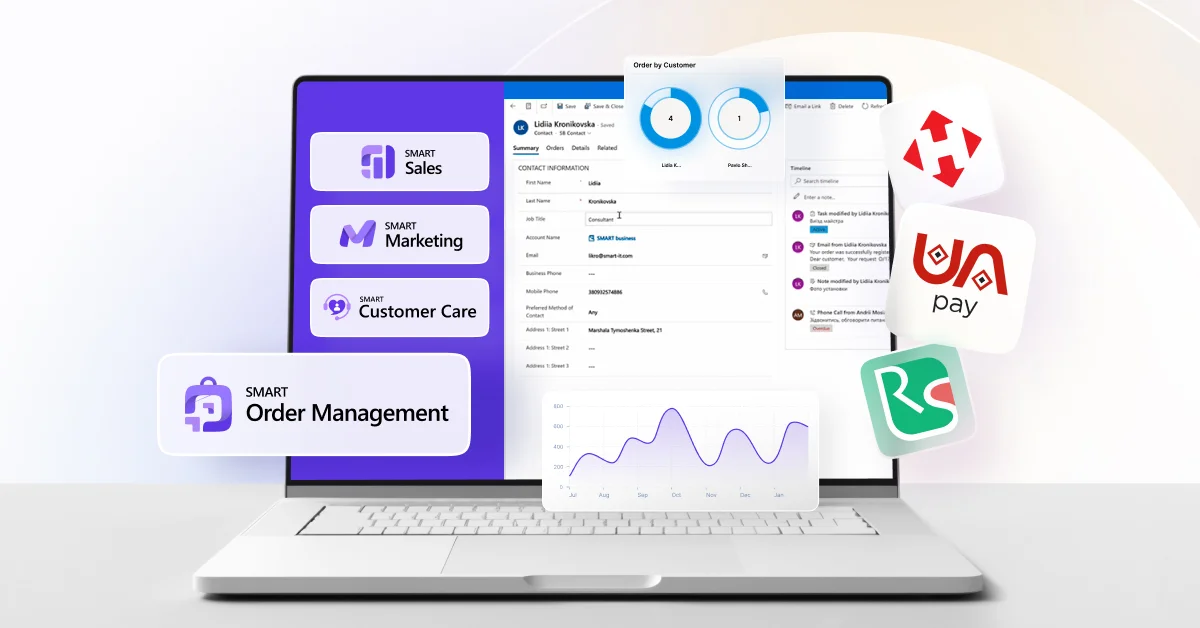
It is worth paying attention to SMART Sales – a solution for B2B sales, and SMART Order Management – for B2C sellers.
SMART Sales is a solution for automating the B2B sales process from the appearance of a potential customer to closing a deal. This is a comprehensive system for optimizing each stage of the sales cycle with templated ready-made business processes. In other words, it is an effective tool for managing all sales processes (both the B2B sales process itself and the customer base, addresses, sales-related communications, products) and monitoring their effectiveness.
DTEK has already appreciated the real benefits of this solution. For more than a year, SMART Sales, introduced here, has been successfully operating to find and attract foreign donors who can provide equipment to solve Ukraine’s energy problems. We are talking about looking for opportunities to purchase or obtain equipment that could be installed at energy infrastructure facilities instead of the ones damaged because of enemy attacks.
Understanding the importance of the project, SMART business implemented the solution in a short time frame – in just 2 weeks. And today it works for the country’s energy sustainability.
Among the users of the product is the private Georgian educational institution British-Georgian Academy, one of the initiators of the digital transformation of education in the country. Here they automated and optimized administrative processes by introducing SMART Sales and brought communication with their students’ relatives to a whole new level thanks to SMART Customer Care.
Both solutions – SMART Sales and SMART Customer Care – helped Nova Poshta implement its own scaling strategy in a short time and under difficult circumstances when opening branches in Poland and maintain a high rate of Nova Post customer satisfaction literally from the first days of operation.
SMART Order Management is a solution for registering and processing orders in B2C sales from the moment an order is placed on any of the e-commerce platforms. It allows you to improve interaction with customers and manage the entire chain of the order process from request to receipt of goods by the customer and automate the distribution, processing and fulfillment of requests, reducing waiting time.
Today, this solution helps the family business Aqua Plus, which has been committed to a customer-centric vision since day one, to realize its mission.
Returning to the capabilities of SMART CRM, it should be noted that a customer can choose one of the solutions implemented on this platform, or several, depending on the specifics of the business. All of them are integrated with convenient modules to establish personal communications.
In particular, this is SMART Chat, which allows, within a single platform, to build clear communication with customers, partners and employees using familiar messengers. It combines Facebook Messenger, Telegram, WhatsApp, Viber, Instagram in one window. It easily integrates with ERP, CRM, CMS, is “multilingual”, with the ability to add an unlimited amount of specialized knowledge and can connect to a contact center operator.
SMART Easy Bot is a solution with a user-friendly interface for simple and comfortable management of Viber and Telegram chatbots, combined with CRM. This allows you to communicate with subscribers on a platform convenient for them, easily creating mass and personal messages for selected segments.
The ability to receive incoming and make outgoing calls from SMART CRM has been implemented thanks to API connectors for IP telephony providers Binotel and Ringostat.
All these solutions enable sellers to be in touch with their customers 24/7, providing effective personalized communication in a convenient format and on their favorite and familiar platform.
SMART CRM also includes the ability to quickly pay for orders via SMART Connector for PayPal. It has a convenient interface for creating invoices immediately when placing orders and allows you to synchronize payment status. Work is currently underway to implement integrations with UA Pay, Mono Pay and the popular Polish payment service Przelewy24.
A guarantee of prompt processing of orders is the implementation of API connectors for popular delivery services SMART Connector for Nova Poshta and SMART Connector for Ukrposhta. They provide the ability to create waybills to send selected items directly when processing orders in CRM.
To summarize, it should be noted that the integration of SMART CRM into business processes gives sellers and businesses the opportunity to better adapt to turbulent market conditions and more accurately sense customers, and, therefore, respond faster and more effectively to their needs and requests.
And this happens primarily because SMART CRM provides sellers with powerful tools for collecting and analyzing data. This is an opportunity to create more relevant and personalized offers and, as a result, increase sales efficiency and customer loyalty, in particular long-term one.
On the other hand, automating many processes through the implementation of these solutions frees up managers’ time and gives them more opportunity to focus on coming up with creative marketing campaigns and personalized commercial offers.
Thus, this platform will allow sellers to be in the sales trend in the near future and significantly strengthen their business ideas by upgrading their own business model.

